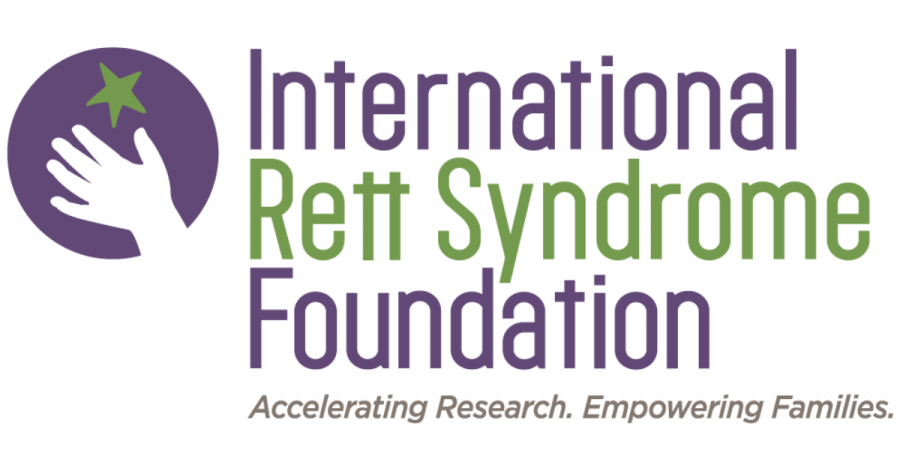
International Rett Syndrome Foundation Expands Scientific Advisory Board with Three Leading Experts
Renowned leaders in neuroscience, gene therapy, and translational research join IRSF to accelerate progress in Rett syndrome treatments and cures.
CINCINNATI, OH, UNITED STATES, May 6, 2025 /EINPresswire.com/ -- The International Rett Syndrome Foundation (IRSF), the leading nonprofit organization dedicated to accelerating research and empowering families affected by Rett syndrome, is proud to announce the appointment of three esteemed scientists to its Scientific Advisory Board (SAB): Kathie Bishop, Harrison Gabel, and Steven Gray. These new members bring deep scientific expertise and a shared commitment to accelerating progress in Rett syndrome research and treatment.
The SAB, composed of leading experts in Rett syndrome and related fields, plays a critical role in informing IRSF's scientific priorities. By identifying emerging trends, research gaps, and opportunities for progress, the SAB helps ensure IRSF remains focused on the most impactful areas of science. Their expertise strengthens the Foundation's ability to advance a bold, coordinated research agenda that aligns with its mission and delivers meaningful outcomes for families.
"At IRSF, we believe that advancing science and supporting families go hand in hand," said Laura Hameed, CEO of IRSF. "Expanding our SAB with these three remarkable leaders strengthens our ability to fund bold, high-impact research that moves discoveries forward toward meaningful clinical and therapeutic outcomes—all to deliver real hope, faster, to families living with Rett syndrome."
The appointments reflect IRSF's comprehensive scientific strategy, which spans three critical pillars: advancing critical research, driving therapeutic development, and ensuring clinical trial success. From fundamental MECP2 biology to gene therapy and translational tools, these new SAB members bring crucial insights across the entire research pipeline.
• Kathie Bishop, Ph.D., is a neuroscience drug development leader with over 20 years of experience across rare and neurological diseases. She led the global development of SPINRAZA® (nusinersen), the first FDA-approved treatment for spinal muscular atrophy, and oversaw the late-stage development and FDA approval of DAYBUE® (trofinetide), the first and only approved treatment for Rett syndrome.
• Harrison Gabel, Ph.D., is an associate professor of neuroscience at Washington University in St. Louis. His research has uncovered novel roles of non-CpG methylation and MECP2 in gene regulation and how disruptions in this pathway contribute to Rett syndrome and autism spectrum disorders.
• Steven Gray, Ph.D., is an internationally recognized expert in AAV gene therapy and neural delivery. An IRSF-funded investigator in his early career, Dr. Gray developed viral vector technologies that have helped enable the first gene therapy clinical trials for Rett syndrome. He is an associate professor at UT Southwestern and directs the institution's Viral Vector Facility.
"Our Scientific Advisory Board ensures that every dollar we invest is grounded in scientific rigor and aimed at real-world impact," said Dr. Nupur Garg, Vice President of Research at IRSF. "With the addition of Drs. Bishop, Gabel, and Gray, we're expanding our capacity to guide the most promising science forward—science that can ultimately lead to life-changing treatments."
For more information about IRSF and its mission to accelerate research and empower families living with Rett syndrome, visit rettsyndrome.org.
About Rett Syndrome
Rett syndrome is a rare genetic neurological disorder that occurs most often in girls (1 in 10,000 births), more rarely in boys, and leads to severe impairments, affecting nearly every aspect of life. It is usually recognized in children between 6 and 18 months old as they begin to miss developmental milestones or lose abilities they have gained, including their ability to speak, walk, eat, and even breathe. The hallmark of Rett syndrome is near-constant repetitive hand movements while awake, and individuals with Rett may experience seizures, scoliosis, breathing issues, GI issues, and more. Rett syndrome is not a degenerative disorder; individuals can live to middle age or beyond.
About International Rett Syndrome Foundation (IRSF)
As the leading Rett syndrome research and advocacy organization, the International Rett Syndrome Foundation (IRSF) builds upon its 40-year commitment to breakthrough discoveries and life-changing advancements in research toward a cure while supporting families affected by Rett syndrome. Through its legacy foundation pioneers, IRSF has invested over $60M in research leading to identifying Rett syndrome's cause, demonstrating Rett syndrome is reversible in mice, and supporting the clinical trials that led to the first-ever FDA-approved treatment. IRSF fights for families living with Rett syndrome and a world without it. Learn more at rettsyndrome.org.
Meghan Cordeiro
International Rett Syndrome Foundation
+1 513-809-1758
email us here
Visit us on social media:
LinkedIn
Instagram
Facebook
YouTube
X
Distribution channels: Business & Economy, Education, Healthcare & Pharmaceuticals Industry, International Organizations, Science
Legal Disclaimer:
EIN Presswire provides this news content "as is" without warranty of any kind. We do not accept any responsibility or liability for the accuracy, content, images, videos, licenses, completeness, legality, or reliability of the information contained in this article. If you have any complaints or copyright issues related to this article, kindly contact the author above.
Submit your press release


